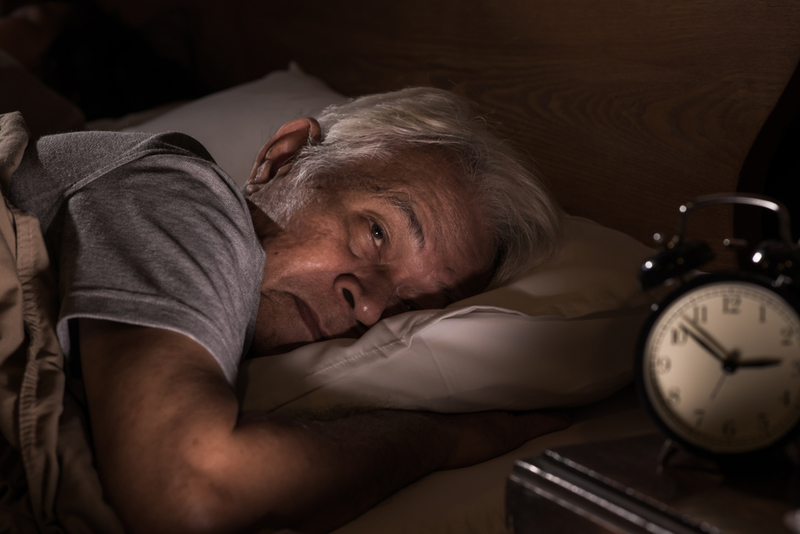Older people with persistent insomnia symptoms more likely to remain depressed, study finds
ANI May 02, 2020
Lack of sleep has long been considered a potential risk factor for mood disorders. According to a new study, older people with depression, who also experience persistent and worsening sleep disturbances, are at much higher risk of remaining depressed.
For our comprehensive coverage and latest updates on COVID-19 click here. The study from researchers at Johns Hopkins Bloomberg School of Public Health, published online in the journal Sleep, analysed data from almost 600 people over 60 years old who visited primary care centers in the Northeast US. All patients met clinical criteria for major or minor depression at the outset of the study. The researchers found that those with a pattern of worsening insomnia symptoms over the following year had almost 30 times the odds of having a diagnosis of major depression at the end of that year, compared to patients whose sleep had improved during that year.
The study from researchers at Johns Hopkins Bloomberg School of Public Health, published online in the journal Sleep, analysed data from almost 600 people over 60 years old who visited primary care centers in the Northeast US. All patients met clinical criteria for major or minor depression at the outset of the study. The researchers found that those with a pattern of worsening insomnia symptoms over the following year had almost 30 times the odds of having a diagnosis of major depression at the end of that year, compared to patients whose sleep had improved during that year.
The patients with worsening insomnia also were much more likely to have a diagnosis of minor depression. Additionally, they were more likely to report suicidal ideation at the end of the year. Compared to patients whose sleep improved, the study found that those with insomnia symptoms that persisted but did not worsen also were more likely to have persistent major or minor depression, but their risk was not as high as patients with worsening sleep.
"These results suggest that, among older adults with depression, insomnia symptoms offer an important clue to their risks for persistent depression and suicidal ideation," said study senior author Adam Spira, PhD, a professor in the Department of Mental Health at the Bloomberg School.
The study's lead author was Joseph Gallo, MD, MPH, a professor in the Bloomberg School's Department of Mental Health. In an earlier study of older adults living in low- and middle-income countries, Spira, Gallo, and colleagues found that older adults reporting insomnia symptoms and poor sleep quality were more likely to report having suicidal thoughts and that those with insomnia symptoms were more likely to report a prior suicide attempt.
In their new analysis, the researchers examined data from sleep and mental health study conducted from May 1999 to August 2001, covering older adults at 20 primary care centers in New York City, Philadelphia, and Pittsburgh. "There otherwise hasn't been much research on insomnia and depression in older adults in primary care settings--even though primary care is where most people with depression are treated," Spira said. According to the analysis of the study, compared to the patients whose sleep had improved, those with worsening sleep disturbances had 28.6 times the odds of having a diagnosis of major depression at the end of the year--as opposed to no longer having a depression diagnosis.
The patients whose sleep worsened also had 11.9 times the odds of having a diagnosis of minor depression at the end of the year and were 10 percent more likely to report having suicidal thoughts at the end of the year. "We can't say that the sleep disturbances we're seeing are necessarily causing the poor depression outcomes," Spira said. "But the results suggest that older adults who are being treated for depression and whose sleep problems are persistent or worsening need further clinical attention," Spira added.
-
Exclusive Write-ups & Webinars by KOLs
-
Daily Quiz by specialty
-
Paid Market Research Surveys
-
Case discussions, News & Journals' summaries